Eigorô Onoe
Birth : 1905-11-10, Tokyo, Japan
Death : 1983-05-28

Shocking scenes are revealed in the Nagasaki Women's prison.

This period thriller concerns a very famous cat known as the "monster cat of Nabeshima". This cat, a symbol of vengeance in human disguise, takes revenge for the death of its master as well as for the corruption in the feudal system.

Ichikawa Raizo’s last film. He plays a Yakuza enforcer who kills a man on his boss's orders. He’s then sent to a provincial town to lie low, only to be caught in another war orchestrated by his original boss who has set him up.

It’s cross and double-cross in these further adventures of Ryuzen, the wayward priest played by Katsu Shintaro as he tries to help a woman who may be the heir to a fortune get what is rightfully hers. Matsuo Kayo, who first rose to international stardom as ‘the supreme ninja’ in “Shogun Assassin” gives an outstanding performance in this clever and exciting caper tale set in the samurai era. Ryuzen agrees to help her, but is he just in it for himself, and is she really who she claims to be? When they come up against Boss Tobei it’s a virtual free-for-all as everyone struggles to walk away with a fortune in gold!

Isazo is a traveling gambler and living legend in the world of yakuza, known for his swordsmanship and bravery, his impeccable manners, and his brilliant talent in gambling. One late fall at an inn in Kiso Fukushima, Isazo befriends a young boy whose mother turns out to be his old love Yoshino, with whom he was not unable to consummate a marriage due to the class differences between them.
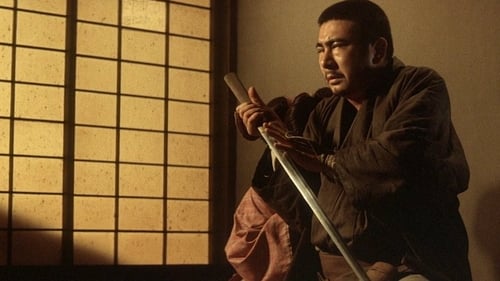
Zato
Zatoichi comes upon the town of Tonda, overrun by gangsters. Using one of his favorite techniques, Zatoichi proceeds to win 8 ryo in a rigged gambling game. Of course, the local gangsters attempt to kill him, and the adventure begins. It turns out a blacksmith named Senzo examines Zatoichi's cane sword, and discovers it to be forged by his old mentor. Senzo discovers the sword is at the end of its usefulness and will break when it is used next.

Third film of the yoidore hakase series
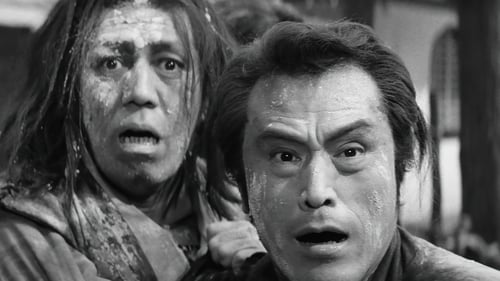
[Period Covered: 1570-1573] Towards the end of the Tenmon Era, Shogun Ashikaga`s powers were weakening by the day and many were there who planned to overthrow him. It was the beginning of the Sengoku (Warring States) period. Three men attack a gunpowder maker in a farmhouse, the first chopping off his arm with his sickle-&-chain weapon, the second blinding him with sword, the third giving the killing blow. His son Kojiro Kosume escapes the attackers as everything he has known up to then explodes into conflagration. He grows up & enters the start of the Tokugawa Era, intent on avenging his father.

A sequel to the popular "The School of Spies", this film continues the adventures of one of the graduates who is assigned to crack a powerful spy ring working out of Kobe. Various people are suspected but, finally, it seems that an Army captain and his geisha friend might lead them to the ring.
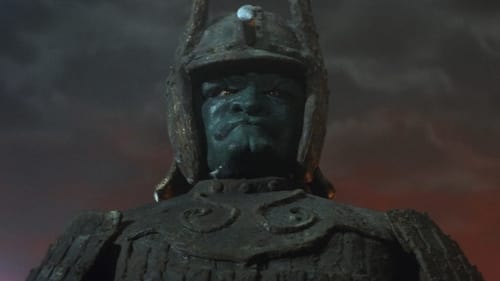
Gosaku
A giant stone statue comes to life to protect the residents of a small town against the depradations of an evil warlord.

The masked daughter of the Shogun wants to kill a samurai who has seen her scarred face. She sends waves of ninja warriors to kill the samurai and plots diabolical schemes / ambushes without much success.

Ronin samurai Ibuki-san enters a town and sells his skills to the warring families. He falls in love with the beautiful horse stable owner but like all heroes, cannot stay.
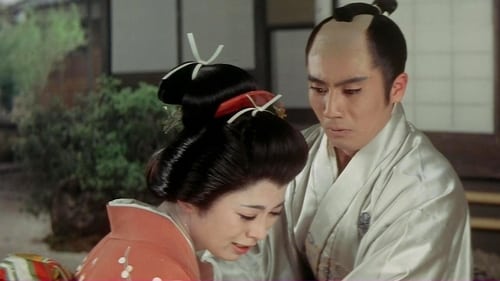
Honda Kozukenosuke
The shogun's vassal Harima Aoyama and a chamber maid are in love with each other, but they cannot be together due to a difference of their status. Soon, an offer of marriage is brought to Harima. Trying to test his love, Okiku breaks one of the plates of the family treasure of the Aoyama family, but Harima doesn't notice. However, someone surrounding her witnesses the moment Okiku breaks the plate on purpose.
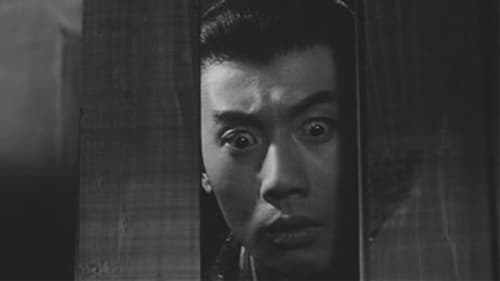
In the mountain regions of Hida, the dreams of a peasant named Kyonosuke, who longed to be a samurai, come true when he becomes one of three doubles, of shadows, of Lord Yasutaka. After months of intense and cruel training, he faces his destiny when the Lord and the other two shadows are killed in battle and he must take on the role of Lord Yasutaka....

Nagasaki at the end of the Edo period had the taste of a criminal paradise, where, despite the exotic, dangerous work was always in demand. Here, three wandering samurai who earn their living by killing get to know each other. Soon they learn that government officials will be transporting a large cargo of gold and decide to steal it.
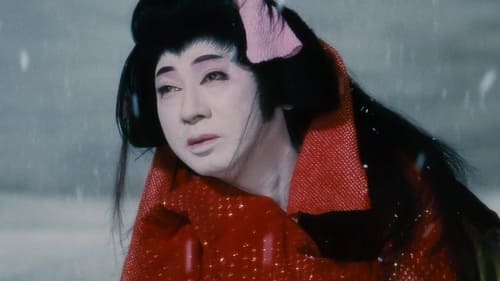
While performing in a touring kabuki troupe, leading female impersonator Yukinojo comes across the three men who drove his parents to suicide twenty years earlier, and plans his revenge, firstly by seducing the daughter of one of them, secondly by ruining them...

Yamagoro
Shinjiro is a rambler, a single sword carrying lone wolf with only his fighting skills to protect him. He doesn’t know where his road leads, only that he must find his lost sister, and the ronin who stole her away. The ronin that Shinjiro has sworn to kill. On the road he’ll find his sister and test his blade against his bitter enemy. He also encounters a lost boy searching for his father, a boy he will swear to protect, and find his own lost love, a daughter of the yakuza who draws him into a frenzied and bloody battle between rival yakuza gangs for the control of a frightened town.
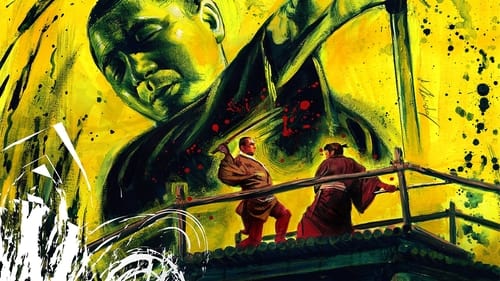
Rihei
The adventures of a blind, gambling masseur and master swordsman. Zatoichi targets a yakuza-controlled village, because war with a neighbouring town's smaller gang is brewing.

Disguised as a beggar monk, Ryunosuke is harassed along the road by the rowdy members of a country dojo or fencing school malingering outside their fencing hall. The third film in the Satan's Sword trilogy.
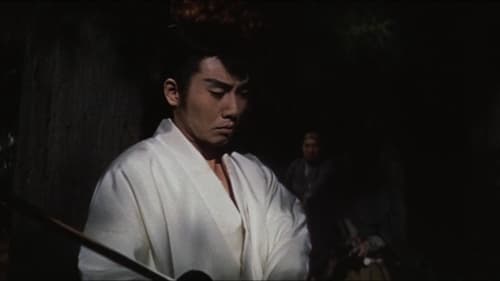
The sequel to Daibosatsu tôge (1960) and the second of the trilogy follows the adventures of Ryunosuke Tsukue after he is blinded.

Japan, 1643, as the Kato clan of Aizu falls from power two brave samurai will settle a dispute in the time-honored tradition of their clan, by drawing their blades in a duel to the death.

The exciting story of Jirocho and his yakuza gang that controlled the area of the Tokaido during the latter days of the samurai era. Awesome fighting from Katsu Shintaro as One-Eyed Ishimatsu highlights this great tale taken from Japanese history!
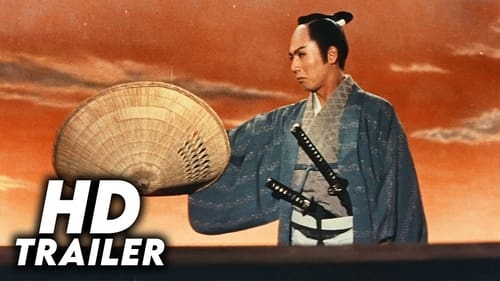
Two amiable samurai wind up on opposite sides of the vendetta between Lord Asano's retainers and the family of Lord Kira that led to the famous revenge of the 47 Ronin.

Tatewaki Satô
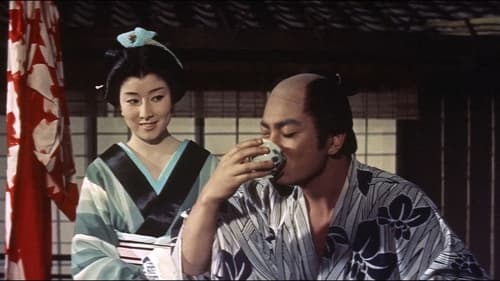
Legendary yakuza Shimizu Jirocho and his 28 henchmen travel the unruly path from a 'Fire Festival' in Akiba to a decisive battle by the Fujigawa.

Kandayû Yamashita
Lord Mito Mitsukuni, the vice-shogun of the whole country, left the family estate and went on a trip to various provinces with his students Sukesaburo Sasaki and Kakunoshin Atsumi. At an inn in Sunagawa, Mitsukuni exposed and punished an evil judge who had fallen in love with a townsman's wife. However, on the night he stayed at Nihonmatsu Castle, Mitsukuni found out that this incident was a performance organized especially for him…

The film won 1959 Blue Ribbon Awards for best actor Raizo Ichikawa and for best cinematography Kazuo Miyagawa. The film also won 1959 Kinema Junpo Award for best actor Raizo Ichikawa.

During the 1200's, legendary Buddhist monk Nichiren returns from his studies to lead Japan out of moral crisis and prepare to fight Mongol invaders by creating a new form of Buddhism. He runs afoul of the existing Buddhist sects and their government supporters and is persecuted. Can Nichiren persevere before the Mogol fleet reaches Japanese shores?

Suzunosuke faces perhaps his wildest foes. This evil gang is lead by a one-eyed birdman and other demonic creatures.

The magical swordsman battles a gang of cutthroats, who are led by a peg-legged villain.

The swordsman again crosses paths with the murderous Devil Mask Gang -- who as the name suggests, all wear hideous devil masks.

In the first two films we learn the character's origins, including his childhood and how he learned his fighting skills. Later, he must face his friend, who has joined a gang of criminals.

First of nine films based on the novel. The first live-action adaptation focuses on the origins of how Akadô Suzunosuke learned his skills as a swordsman.

Suzunosuke visits a martial arts master and tries to learn the 'Vacuum Slash,' a secret technique of producing tornadoes.

Early film by Kenji Misumi.

Matsusuke Onoe
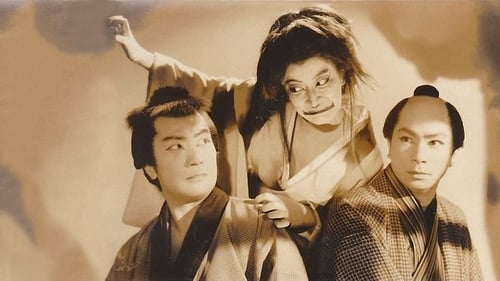
A kabuki actress is murdered. Her pet cat laps its mistress's blood and becomes a demon possessed by the vengeful murder victim.

The Great White Tiger Platoon was part of the Aizu clan's last ditch efforts to stop the advance of Imperial troops after the fall of the Tokugawa Shogunate. Meant to be a reserve unit as it was made of the young, 16-17 year old sons of Aizu samurai. Their story is one of the great tragedies of the Boshin War (1868-1869) as they were called into action. Getting cut off from the main body of their platoon, a group of 20 from the 2nd squad retreated to Iimori Hill, where they looked down upon fires surrounding Aizu Castle and thinking that the castle has fallen and all is lost, they choose to die as samurai by committing seppuku. A superb rendition of this true story that shows the true honor of the samurai.

The Lord of Okazaki is killed by his brother-in-law. Although the Lord's widow bears a child, she is also killed. Then, a ghost cat begins stalking in the castle.
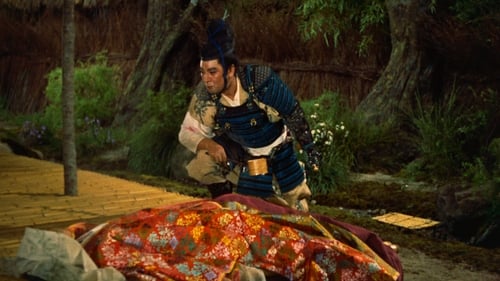
Kunitsune
Japan, 1159. Moritō, a brave samurai, performs a heroic act by rescuing the lovely Kesa during a violent uprising. Moritō falls in love with her, but becomes distraught when he finds out that she is married.

This film stars Tanaka Kinuyo as the mother of the heir to the Hosho name, a famous lineage of Noh actors. The heir, Hosho Yagoro, is played by Hasegawa Kuzuo who went on to become familiar among Ichikawa Kon fans as Yukinojo in An Actor's Revenge, which was also co-written by Ito, adding to the relatedness of An Heir's Place.
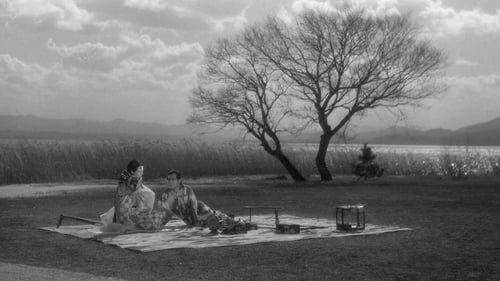
Knight
In 16th century Japan, peasants Genjuro and Tobei sell their earthenware pots to a group of soldiers in a nearby village, in defiance of a local sage's warning against seeking to profit from warfare. Genjuro's pursuit of both riches and the mysterious Lady Wakasa, as well as Tobei's desire to become a samurai, run the risk of destroying both themselves and their wives, Miyagi and Ohama.

A woman loses her son through an evil conspiracy and commits suicide. Shortly afterwards a ghost cat begins haunting the conspirators. This is Takako Irie's first bakeneko (ghost cat) movie; it started a Daiei cycle which was very popular at the time in Japan.

Gensaburo Funaki and Oyuki were childhood friends, but Gensaburo misunderstood that Oyuki was hesitant to get married because he had to feed his father and younger brother. I left the town.

The Color Print of Edo is a 1939 black and white Japanese silent film with benshi accompaniment directed by Kazuo Mori. It is a cheerful period drama, sprinkled with comical scenes and tells the story of a loyal and handsome Edo period servant who fights to help his older brother marry the woman he loves. The star of this film Utaemono Ichikawa gained enormous popularity for his portrayal of a cheerful and chivalrous man.
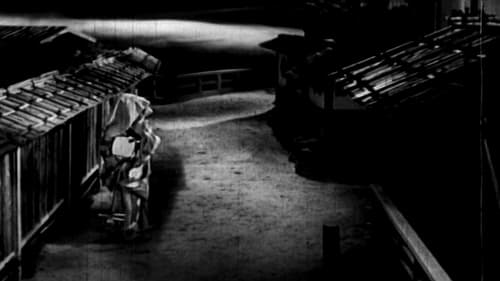
A quintessential example of the period "ghost cat" (bakeneko or kaibyo) movie, this was one of at least six such titles released by the studio Shinko Kinema between 1937-40 featuring Japan's first scream queen, Sumiko Suzuki. Here she plays Mitsue, the possessive onna-kabuki actress betrothed to apprentice shamisen player Seijiro. When one day Okiyo, a beautiful young girl of samurai class, is led to Seijiro's house by his lost cat Kuro, she becomes besotted with him. Dark jealous passions are invoked in Mitsue, which are intensified when Seijiro gifts Okiyo his precious shamisen. The cat is the first to suffer at the end of Mitsue's hairpin, but returns from the grave to assist Okiyo's younger sister Onui avenge her sister's murder.

A mournful masterpiece by Kinugasa Teinosuke



Heihachiro Kobayashi
This 1932 adaptation is the earliest sound version of the ever-popular and much-filmed Chushingura story of the loyal 47 retainers who avenged their feudal lord after he was obliged to commit hara-kiri due to the machinations of a villainous courtier. As the first sound version of the classic narrative, the film was something of an event, and employed a stellar cast, who give a roster of memorable performances. Director Teinosuke Kinugasa was primarily a specialist in jidai-geki (period films), such as the internationally celebrated Gate of Hell (Jigokumon, 1953), and although he is now most famous as the maker of the avant-garde silent films A Page of Madness (Kurutta ichipeji, 1926) and Crossroads (Jujiro, 1928), Chushingura is in fact more typical of his output than those experimental works. The film ranked third in that year’s Kinema Junpo critics’ poll, and Joseph Anderson and Donald Richie noted that 'not only the sound but the quick cutting was admired by many critics.








































